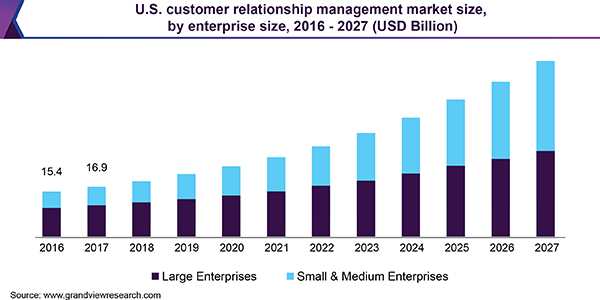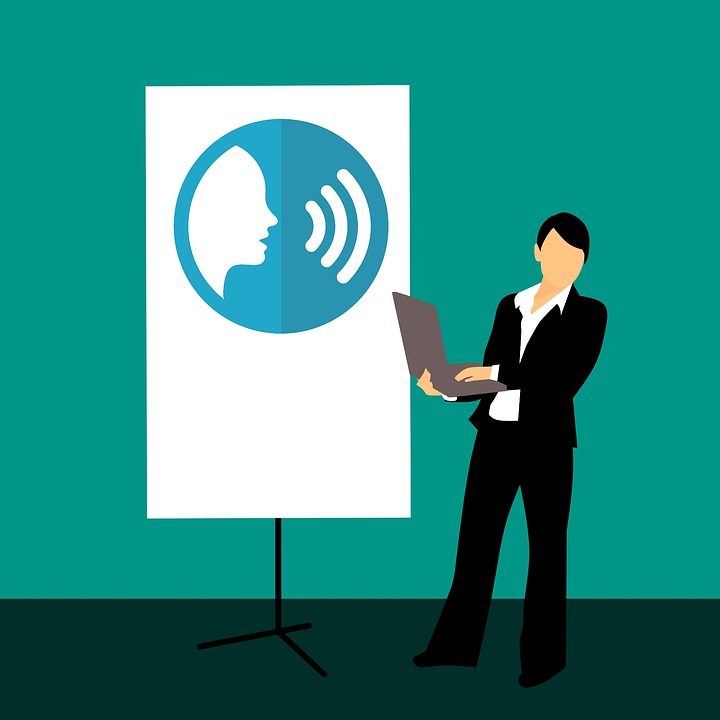Customer Relationship Management (CRM) is a big industry and the software sector within it has been growing at a rapid pace. The market size stands at USD 40.2 billion in 2019 and projections show that it may expand at a CAGR of 14.2% from 2020 to 2027. Currently, the industry has a growing demand for Software as a Service in the deployment of customer relationship management suites and solutions.

CRMs have a lot they can add to a business. They aid in sales management, delivering actionable insights, integrating with social media, and facilitating team communication. CRMs help keep track of customer data, manage unique client profiles, and track all interactions. In doing so, they simplify a lot of the processes that would be arduous to do manually, while providing a single hub for all customer relations needs.
The software side of the industry has a lot to offer to companies, helping in organising and aiding in interactions with clientele or customers. It helps your workforce manage their time and keep track of tasks. It also provides them with a powerful tool for boosting workplace efficiency. Customer relationship management tools do this by organising contact data, future prospects, and setting up reminders for representatives. They also bring in even more benefits.
Types of Customer Relationship Management Systems
Broadly, there are 3 scales of CRMs:
- Desktop systems: These are local area systems that run on a single computer (not the type we’ll be referencing as often in this article as it doesn’t really fit the right scale of online client management)
- Client/server system: These operate through a central database stored on a common server. Normally, these are self-hosted systems running on a software installed on each user’s personal computer
- Cloud-based systems: These are the most modern ones, working globally as long as access to the net is available. The servers are supplied and hosted online by a third-party provider, ordinarily
The client/server system and the cloud-based system are the most efficient ones, but each have their drawbacks. For one thing, the cost of a personal server is far higher than third party cloud platforms. On the other hand, the former gives the business a greater degree of control over security and privacy. Disaster recovery can also be cumbersome if the company has to do it itself. But depending on a third party this can be risky. Mobility is another issue. A personal server can rarely as extensively available as most massive cloud platforms.
Choices in types of servers should be based on a business’ needs, as each of these has different considerations that may influence the company’s client management processes.
Integrated Customer Relationship Management Software Solutions
What does CRM software do and what value does it add other than what the name implies? One of the main advantages it provides is the ease of keeping all client relations in one place. Keeping all the necessary client information in one place can be a massive boon to productivity. It allows companies to streamline their processes and much more easily coordinate between departments. Customer relationship management systems further help managers and reps in speeding up the process of looking up files and documentation. This isn’t just great for the business but also a crucial step to client success.
CRMs allow the representatives and their teams to automate their processes along multiple lines, thus improving efficiency. Teams don’t have to spend as much time logging emails, calls, meetings, and interactions. They can store this type of information automatically and collect/aggregate it within the system. Further benefits of automation from CRMs show up when reps update all deals in terms of the stage they’re in. The system can automatically handle a lot of the duties at any given stage. This includes weighting, summation, and visualisation.
Aside from allowing for better bookkeeping and scheduling, CRMs also invite new forms of customer relationship data collection. Digital logs like these can be very beneficial in knowing the exact interactions that are going on with the client. Reps will have an easily searchable catalogue of when a contact visited your company website or downloaded content off of it, or if they spoke with another member of your sales team already. Cataloguing and viewing such data has never been easier.
Communication Benefits

CRMs are most useful in terms of building better communications with clients and between departments. Representative-to-representative communication also sees some major boosts with these systems. Reps can track all parts of the customer’s purchase, building an accurate picture of their buyer’s journey. They can use every interaction, email, phone call, and other such communication events as data for better communication. For example, a rep can use the CRM to know if and when they need to reach back out to their clientele.
Furthermore, reps can subdivide their client base into location, company size, or deal stage, making inter-departmental communication far easier (especially for large companies). This is particularly useful for designating and reassigning tasks, as CRMs allow managers to tag reps to specific duties. Sales leaders, managers, and reps can also reassign specific leads with just a few clicks.
This mode of working is particularly useful for administrative duties. Not only can CRMs generate sales data and reports. They can also simplify manual data entry, record/timestamp conversations, and catalogue contact information. This saves up a lot of time and makes forwarding information between parties less cumbersome. There are many benefits to everyone working out of the same pool of data, which can prevent all sorts of miscommunication as well. Ensuring that everyone has the same source of numbers and client info is a big step in keeping everyone on the same page.
Financial Advantages of CRM Software

According to Hubspot, companies that use CRMs experience a 29% increase in sales, better team productivity and a host of other benefits. While companies do end up paying varying amounts, the apparent ROI is very high. Automating a lot of the number collection makes data collection about sales far more easier to track and use. As mentioned earlier, it also has the benefit of making boring tasks like generating sales reports a matter of a few clicks.
Evaluating personalised reports is also a breeze. Pulling up all sorts of data and metrics can provide a lot of insight into how customers are responding to your sales tactics. It can also be a great testing and teaching tool for employees, providing useful feedback based on mathematical models. This makes strategic decision-making even simpler, as planning accurate forecasts is one of the main worries when it comes to planning your next move.
This also helps with easily generating different time periods or time scales. Monthly revenue or year on year, it doesn’t matter. The automation can generate these reports in little to no time. These can chart the growth of your company for potential investors to see as well. Keep your stakeholders on the up and up with such technologies and use customer relationship management technologies for finding the best future tactics.
Related Article: Small Business SEO Practices


